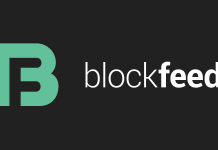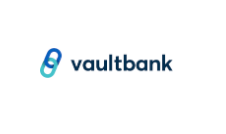- This is not financial advice.
- Investitin.com staff are not financial advisors.
- This is not a buy, sell or hold recommendation.
- Do your own research before you invest in anything including this project.
- This interview is not a suggestion or an endorsement of this ICO or any other ICO or any cryptocurrency.
- This article has been published for free.
- Investitin.com staff have not invested in Eth Capital Asset Managment and Hedge LLC
- Your capital as at extreme risk when investing in ICOs and cryptos.
- Please consult your local financial advisor to verify if this project is considered as a security before you invest.
Interview with Debitum
What challenge is Debitum addressing?
A $2.5 trillion gap of SEM funding. While the big financial institutions work with big players, many small and medium enterprises are left unbanked. Lack of available finance slows their growth while having negative impacts to on economy. SMEs are the backbones of our economies, most of the new jobs are created at SMEs. However, due to the lack of interest from big financial institutions like banks, this area is left without an available stream of credit. Funds are allocated for big players while
What is the scale of this challenge?
it is a global problem identified by the World Bank, traditional financing institutions like banks are failing on this issue hard. Job created and economic growth through the private sector development is a globally recognised issue. Global credit gap is felt basically all around world’s economies. According to World Bank, there are from 200 to 245 million formal and informal enterprises in the world which unserved or underserved.
How does Debitum turn this challenge into an opportunity?
Although, it is a big global challenge, but for fintech and alternative finances companies like Debitum that creates an opportunity to intervene and solve this problem. Technological solutions like blockchain allow us to design new ways to solve this problem.
Debitum Network will be a blockchain and trust based ecosystem joining various players (investors, risk assessors, document validators, insurers etc.) to complete end-to-end financing loop for SMEs. Debitum will allow small and medium enterprises to access financing from any investor around the globe.
Local infrastructure for assessing the risk, validating documents, collecting the debt etc. will be used while allowing global investors to participate.
We believe that we will create value for all the parties in ecosystem. For example, investors, like funds, will access a new credit class to allocate their funds. We do know from our experience that funds are actively looking for new markets to invest their money. Usually due-diligence for allocating investments in alternative finance projects takes months or even up to 1 year.
In the Debitum ecosystem the process will be facilitated due to transparency, speed and previous records of participants on the blockchain.
3rd parties like risk assessors, debt collectors, insurers etc. will benefit from being basically a local player specializing and knowing best local players, legal system, business culture etc. to becoming a global player by scaling and selling their services to wide variety of global investors.
Finally, SMEs will be provided an access to so much wanted capital. These additional funds may ensure their investments, growth and prosperity. SMEs are backbones of most of the world’s economies. Most of us work in SMEs, imagine that each SME could hire at least 5 new people after receiving money for their expansion, how valuable that would be for the entire economy?
In which jurisdictions will Debitum operate at first?
In the beginning, we are planning to operate firstly in the Eastern European countries like Poland, Czechia, Slovakia also The Baltic States. The reason for this is that the credit gap, according to World Bank, is biggest in these countries in Europe. Our core team comes from Lithuania so we do know these markets best.
What is the business process of Debitum?
It will be a community based various actors on blockchain. So, for example, SME in Poland is looking for acquiring funds, an institutional investor in London is looking where to allocate their funds. Then this process starts: local risk assessor in Poland assesses the risk, insurer in France insures the risk, UK fund invests and SME in Poland borrows. Everything is placed on blockchain, transparent and trustful. The participants of the system will be rated due to their performance record, the better record you have the more other parties would like to work with you.
How will loans be sourced?
Debitum Network itself will by the ecosystems facilitator. It will collect funds from investors and source them to the borrowers. The funds usually are too big to work with each borrower personally. It’s neither economical nor effective for , that’s why Debitum comes to be a facilitator of the ecosystem.
Can you showcase some team members/advisors which have a strong background? What is their connection with this particular project?
Debitum Network core team comes from FinTech company Debifo – an existing business in alternative finance for 3+ years. Debifo has already raised 3M Eur from private investors and have ensured 10M Eur from two international funds. We are working to complete our advisory board at the moment.
Andrius Bogdanovicius – a genereal manager of Creditinfo Lithuania. Creditinfo helps financial institutions, telecommunication companies and other entities in Lithuania to take on crediting solutions.
Tadas Langaitis – member of Lithuanian Parliament, entrepreneur, angel investor.
James Downton – marketing advisor, CEO of Clickverta, previous success story with Monetha ICO.
Julius Pagojus – regulatory advisor, former deputy minister for Ministry of Justice of Lithuania.
We are actively discussing with several international experts to join our advisory board. We hope to reach an agreement in the very near future, however up till now we have to disclose their names.
Does Debitum have a viable product at this time?
You can check our MVP here: https://demo.debitum.network/#/login
What is the structure of the ICO?
ICO will be structured in 2 sessions. Session1 42% of all available coin supply will be sold. Session2 28% of available supply will be sold. Founders and supporters share 30%
What are the requirements to participate in the ICO?
Currently, anyone is able to participate
What are the pros and cons for the token holders?
pros: as the ecosystem will grow, more tokens will be needed to be paid for the services hence the value will grow; pre-ICO buyers will have vested period.
cons: ICO buyers will have 6 months vested period.
Was there a pre-ico?
There will be 2 sessions. Session no1 will be pre-ICO
What is the price of the pre-ico and the price of the ico?
Defined by the market. All coins will be distributed proportionally to contributions among all participants.
How many tokens will be issued?
1billion
Is there a cap on the ICO?
50million Eur
For more information please visit: https://debitum.network/
We thank Debitum for the interview.












